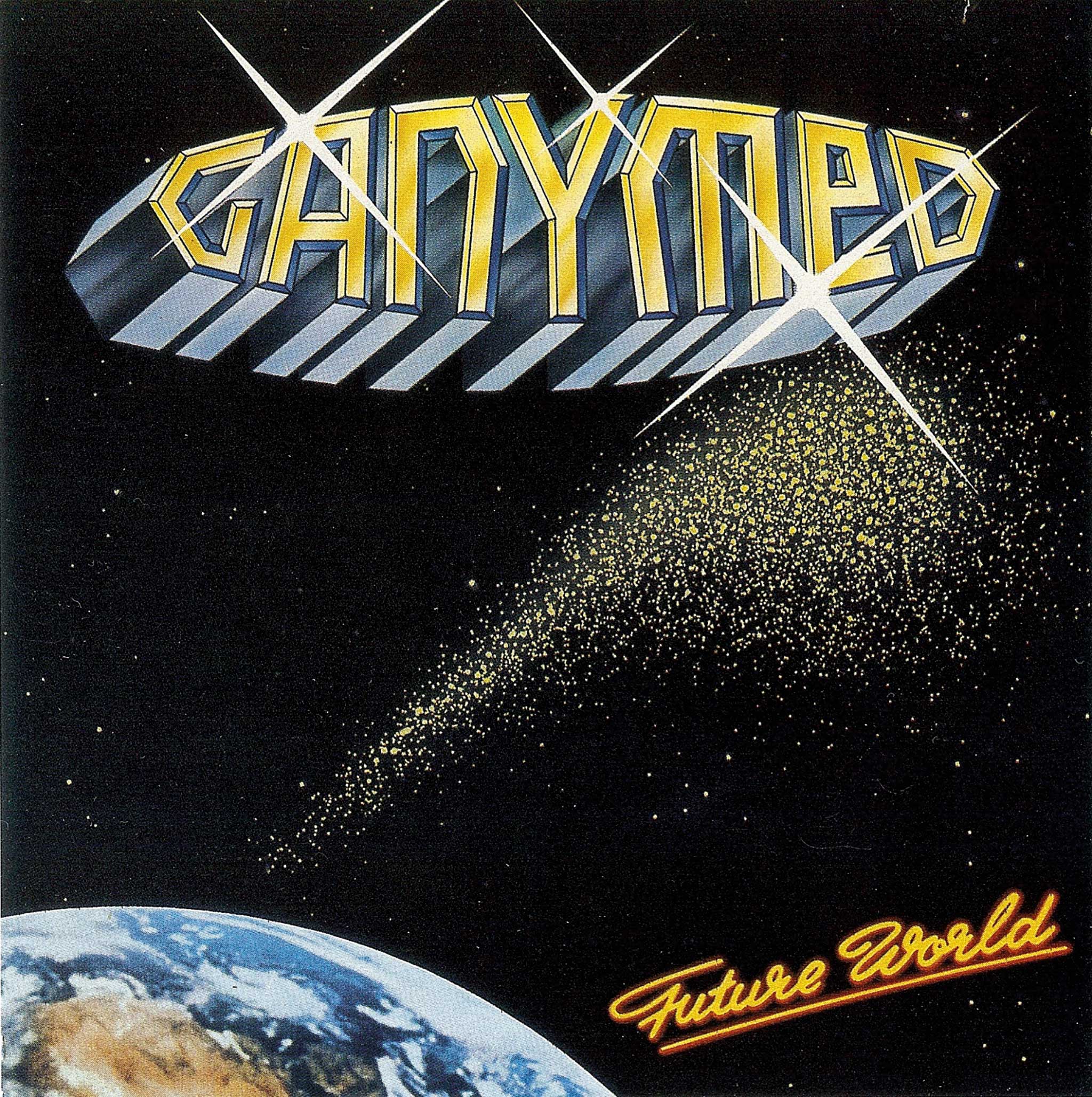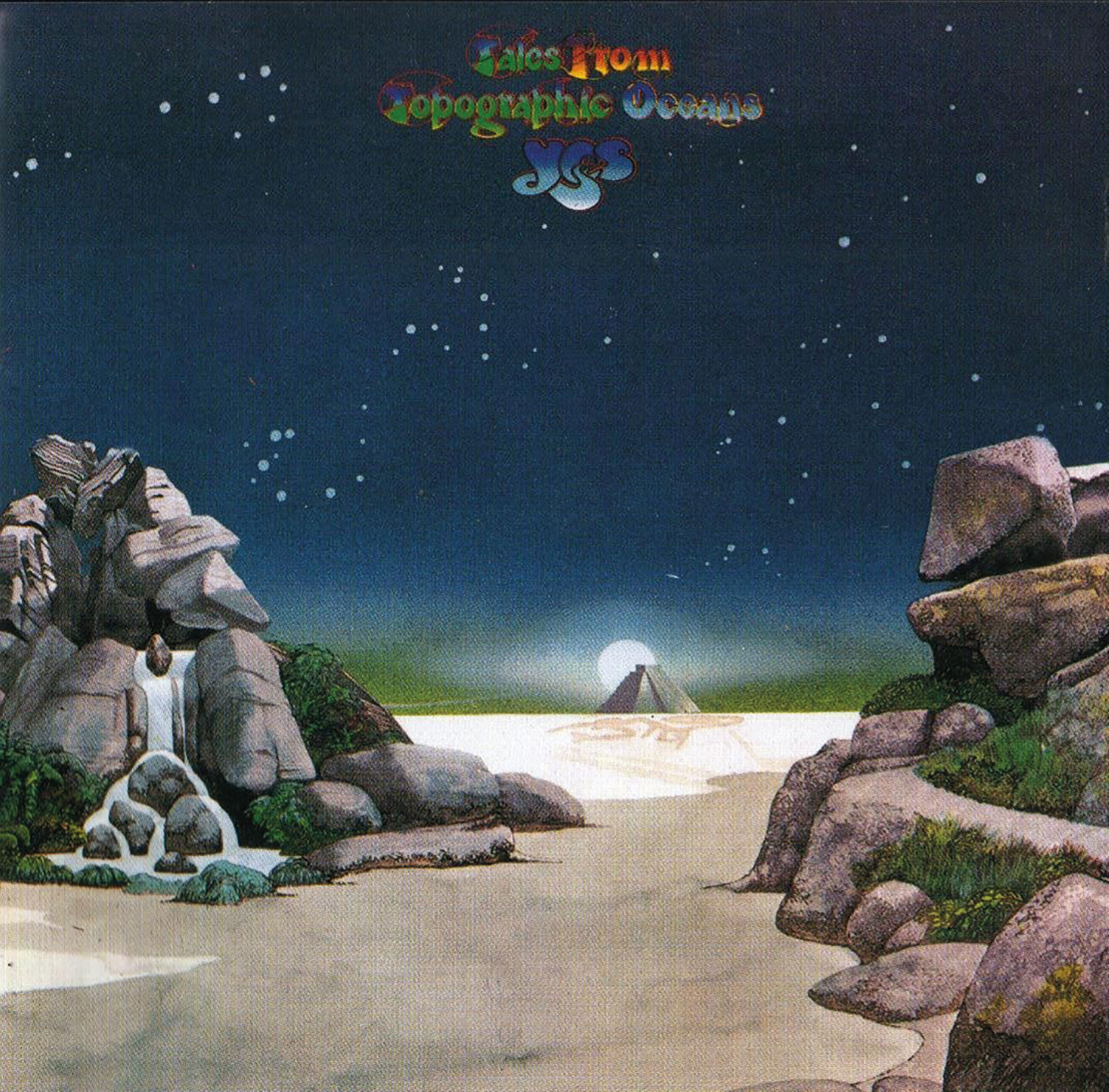Yorkshire has produced its fair share of soothsayers and sages. Think Old Mother Shipton, Brian Clough and William Wilberforce, the man who ended slavery. Think Sean Bean in Game Of Thrones and his endless ‘Winter is coming!’ schtick. Andy Tillison may be hewn from more proggy Yorkshire rock, but The Tangent’s main man continues to make a fair case to be redubbed ‘The Oracle of Otley’. In fact, he’s in danger of becoming one of the senior statesmen of modern prog.
And who can begrudge him that? As The Tangent release their eighth offering, A Spark In The Aether, Tillison’s appetite for ‘prog’-nostification about life and the universe is undiminished. As he acknowledges, “All I like doing is talking,” and, rather like that other sage of prog, Derek ‘Fish’ Dick, he’s got something worth saying. Not only does Tillison’s back catalogue count as a veritable who’s who of progressive talent – The Tangent count members of Van der Graaf Generator, Gong, The Flower Kings and Maschine among their many illustrious alumni – but his opinions have the wit and authority of a man of truly cosmopolitan tastes. As Tillison reminds us, this is a guy who loves everything from jazz to funk to punk to, er, disco.
That’s right, disco. “It’s well known among Tangent fans that I’m an absolute total disco freak,” he says, without a hint of irony. “I’ve always seen the disco scene of the 70s as prog’s unwanted sister.” As if to prove the point, A Spark In The Aether takes the truly delicious risk of weaving some Tower Of Power grooves into the familiar mix of Canterbury scene jazz and punk fire.
Nonetheless, perhaps no one saw The Tangent adding 70s dance grooves to their oeuvre, especially after Tillison’s last leap of faith in 2013. The Tangent, famously, don’t do concept albums. “We have a couple of songs about something and then we’ll move onto something else,” Tillison insists. Yet 2013 ushered in a concept album, the mould-breaking Le Sacre Du Travail. Le Sacre…’s meditation on work’s daily grind was Roger Waters meets early Moody Blues, and Tillison stands by that album. It was always clear to him, however, that the new offering was going to be different, not least because Le Sacre… laid open a potential musical cul-de-sac.
“Le Sacre… was ambitious. It was very complex, and it took ages to write and put together. I’m proud of what we achieved with that record. But the thing is, at the same time it put The Tangent into a kind of Roger Waters arena of ‘Is this what they’re gonna do? Be eternally depressing and spend the rest of their lives commenting on how bad things are?’ I thought, ‘Well fuck that!’”, he laughs. “There are plenty of life experiences, some of them are downers and some of them are uppers. Why not celebrate good times too?”
Given his love of disco, Tillison’s quote from Chic’s Good Times is telling. If the new album isn’t quite like Gentle Giant’s tour bus crashing into Earth, Wind and Fire’s – in truth it’s more Steely Dan and Kansas and even tips its head to classic Floyd – Spark In The Aether is no less ambitious or bonkers than Le Sacre…. Indeed with its willingness to embrace funk brass arrangements it’s arguably more risky. Tillison, never short of a quotable line, argues that this lies at the very heart of great prog.
“Prog rock is the Breaking Bad of rock music,” he quips. If it then becomes difficult to stop imagining Tillison as a kind of Yorkshire Walter White cooking up criminally addictive prog meth, few would dispute that at its best, prog is unafraid of the craziest plot twists and turns. “Whoever portrayed this as being some kind of pretentious broomstick-up-your-ass music? Honestly, it’s the most fun music in the world.”
Intriguingly, it was The Tangents’ recent live outings that reinvigorated Tillison’s taste for the sheer absurdity of prog. It’s fair to say The Tangent have never been a prolific touring band, perhaps partly reflecting the fact that Tillison has been the only constant. Yet it was the experience of gigging with long time co-conspirator, Flower Kings/Karmakanic bassmeister Jonas Reingold and new boy Luke Machin of Maschine that formed the crucible for an album that dares not to take itself too seriously.
Crucially, A Spark… is very much a full circle offering, something indicated by its sub-title, The Music That Died Alone, Part II. A conscious echo of their 2003 debut, The Music That Died Alone, Spark… acts in part as a state of the nation address to the world of prog.
Twelve years on from an album that asked serious questions about prog’s future, Tillison has at last found an answer. “I realised that some of the songs – as with the first album – were actually commenting on the music itself. I think we can claim a first with the very first Tangent record: it was probably the first prog record to have lyrics about progressive rock in it.”
Back in 2003 Tillison was arguably seeking to reclaim prog back from the Americans and Swedes – not least Neil Morse and Roine Stolt – who had redefined progressive music in the late 90s. “I thought it was about time we restored some Englishness to this bloody lot. So the first Tangent album sounds really, really English.” Rightly, tracks such as The Canterbury Sequence have become Tangent classics. What’s fascinating about The Tangent’s latest incarnation is how much Tillison is reworking American and Swedish sounds. Moments on the title track echo the Flower Kings and some of the chord sequences out-jazz Steely Dan.
Part of this is down to personnel. Tillison consciously avoided having the usual Tangent guest slots on Spark…, concentrating on letting the skills of a well-formed live band shine through his arrangements. The tired claims that Tillison uses Tangent members as session musicians are shown for the bunkum they are. Each member shapes his own contribution under Tillison’s guiding vision. And despite this album being something of a return to starting points (Reingold aside), Tillison was not tempted to bring back any of the first album talent such as Roine Stolt. “Roine is an amazingly busy guy. I didn’t even ask him because the guitarist I really wanted to be on this record was Luke Machin.”
There’s something charming about Tillison’s fondness for Machin. His almost paternal respect is a reminder, if one were needed, that Tillison is not one for looking back on prog’s history as the glory days. “I wanted this young man to play on the record. I wanted that privilege of making a record with someone who is younger than my son.” Along with Haken and Beardfish, the existence of a band such as Maschine is an indication of prog’s health and Tillison wants to be supportive: “To be a part of his future. For your record to be a part of his past is an enormous honour for me. And he’s the guy.”
So is Tillison settling into a comfortable late-middle age? Hell, no. If, eight albums in, Tillison is clear that prog is far from being a toothless old hound that deserves to be put down, he’s also clear on the fact that there are issues to be addressed. “There’s now more people playing it than ever before, the only problem is that there are fewer listeners: and that’s because so many of us are dying! [laughs] We are getting older.”
Tillison’s willingness to offer Jeremiads about the state of modern prog is well known. L’Etageré du Travail, a collection of extra chansons from Le Sacre… contained the amusing and smart Supper’s Off, a satire on the conservatism of the middle-aged fan. He takes up the questioning again on Cod Pieces And Capes, singing about bands taking ‘the easy road by sticking to the script’. “I know people who are more excited about a Steven Wilson remix of an old album than they are about the new Steven Wilson album.”
If Tillison has lost none of his critical ire, it’s a joy to witness an artist whose trust in progressive music’s capacity to surprise and amuse is undiminished. At the centre of Spark… is a 21-minute musical road-trip through the psyche of America called The Celluloid Road. “All the cues and landmarks are things I’ve seen in film – be it Easy Rider, be it Breaking Bad, be it Thelma And Louise. I think there are about 20 films that are mentioned.” Not only does the track make it possible for the listener to play Film Star Bingo, but it gives Tillison and co the chance to quote the Theme From Kojak or a blaxploitation movie. It’s exhilarating stuff.
One of the questions Tillison asks on Spark… is, ‘Did I really waste it? The life I could led as a lawyer or a preacher I could have tasted your success.’ With his wild locks, perhaps Tillison might have cut it as an Old Testament-style prophet, but preaching’s loss is prog’s gain. All Hail, the Oracle of Otley!
A Spark In The Aether is out now on Inside Out Music. See www.thetangent.org for more information.

The Strange Case Of Prog Disco…
United by synths and sequencers in the 1970s.
Is disco really the unwanted sister of prog? “The logic’s there,” Tillison argues. “In 1973, on the cover of Tales From Topographic Oceans, there are fish swimming around and in the distance there’s a pyramid. Yes are using synthesizers, modern technology and fantastic musicians. Earth, Wind & Fire: huge stage show with pyramids. They’ve got really fantastic musicians, synthesizers – the whole thing was just the different side of the coin.”
Hmmm… a stretch, perhaps. But there’s no doubt 70s prog and disco unite around the use of new tech – synths and sequencers. When Giorgio Moroder created I Feel Love, there was a family resemblance to the electronic repetitions of Krautrock, notably Kraftwerk. By the late 70s you had Austria’s Ganymed banging out space disco. And Goblin’s work on Dario Argento’s schlock-horror movies can be described as groove-tacular. What’s beyond question is that, by the early 90s, The Orb and 808 State had reworked prog and disco for their own clever ends, leading to ambient and progressive house.

